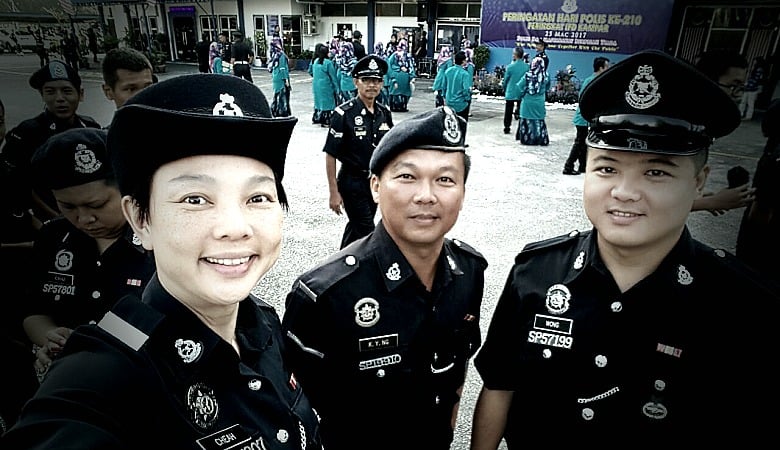With a bigger Chinese representation in the civil service, we will have a bigger say when it comes to policy-making, as the community’s views will be better reflected at various government departments.
Based on the ethnic composition in the Malaysian civil service, no doubt the number of Chinese Malaysians serving at government positions are very scanty.
The situation is not so bad in the education sector, but for uniformed groups, the Chinese are a truly rare breed in those services.
Prime Minister Datuk Seri Anwar Ibrahim’s political secretary Chan Ming Kai revealed that out of the country’s 1.57 million formal civil servants as of end-2022, only a paltry 4.46% or 70,000 were ethnic Chinese, a far cry from its 22.9% of the country’s total population.
Moreover, most of the country’s ethnic Chinese civil servants are teachers, and we can imagine very very few who actually serve in other government departments.
The Malaysian government has never rejected the recruitment of Chinese Malaysians into the public service, and the door is always wide open for them.
There are several factors that could have suppressed the percentage of ethnic Chinese in the country’s civil service.
Firstly, due to the low percentage of Chinese in government departments — even under 1% in some — young Chinese Malaysians find it very difficult to adapt to an environment with vast cultural differences.
Secondly, due to widespread misperception in the community, many Chinese Malaysians think that they will never get fair chances for promotion in government positions, hence the lukewarm response to the government’s recruitment drive.
Thirdly, civil servants do not take home bountiful salaries, and what they make each month is barely enough to feed their families.

In reality, the whole thing is not actually as bad as many would have believed, because the salary scale for different grades of civil servants is completely transparent.
Moreover, civil servants in Malaysia are enjoying vastly improved perks and benefits nowadays. A newly recruited police cop can look forward to over RM3,000 a month, including all sorts of allowances.
Based on the admission rate of civil servants, non-Malay communities have never been specifically marginalized. We encourage young Chinese Malaysians to treat entering the civil service as a lifetime experience, believing that they will eventually adapt pretty well to the new environment if they really try hard. However, if they still can’t, they can quit and go into the private sector anytime.
From the macroscopic perspective, the ultra low percentage of Chinese in the civil service will over time give rise to widening gap between the local Chinese community and the country’s administrative system.
If we have more Chinese in the civil service, sure enough we will have a bigger say when it comes to policy-making at various government departments, as the community’s views will be more comprehensively taken into account, or at least heard.
Well, it is up to individuals to choose their careers of choice, but with the good intention of getting more Chinese Malaysians to join the civil service, the office of the PM’s political secretary has teamed up with Sin Chew Daily to organize a series of talks across the country with the objective of encouraging more young Chinese to join the PDRM.
Perhaps those who keep slamming the country’s civil service should try to get their children to become civil servants. There might be black sheep in the civil service, but it is downright unfair to make a generalized statement against the service.
During his recent unannounced spot check at KLIA, PM Anwar Ibrahim admitted that indeed there is room for improvement in immigration service, but he said majority of immigration officers are devoted to their work.
From Kluang in the southern region to the Kedah Chinese Town Hall up north and Sin Chew Daily’s headquarters in Petaling Jaya, we have invited several prominent Chinese senior police officers to share their experiences with the participants of the talks.
The country needs capable new generation police cops who can take up the challenges and their responsibilities. If our young people are really serious about safeguarding the nation as well as their families and fellow Malaysians, then they should give it a try and shoulder the enormous duty of preserving the country’s laws and battling crime.
The antiquated Chinese belief that a good man should not become a solider or police cop is no longer relevant in our modern society and should be discarded.
In a recent talk in Kluang, Segamat deputy OCPD DSP Ng Swie Chait urged young Malaysians to forgo such a fallacious stereotypical impression.
The police enjoy a relatively noble social status in the West despite sporadic cases of police brutality. This is because they are seen as upholders of social justice.
ADVERTISEMENT
ADVERTISEMENT


































